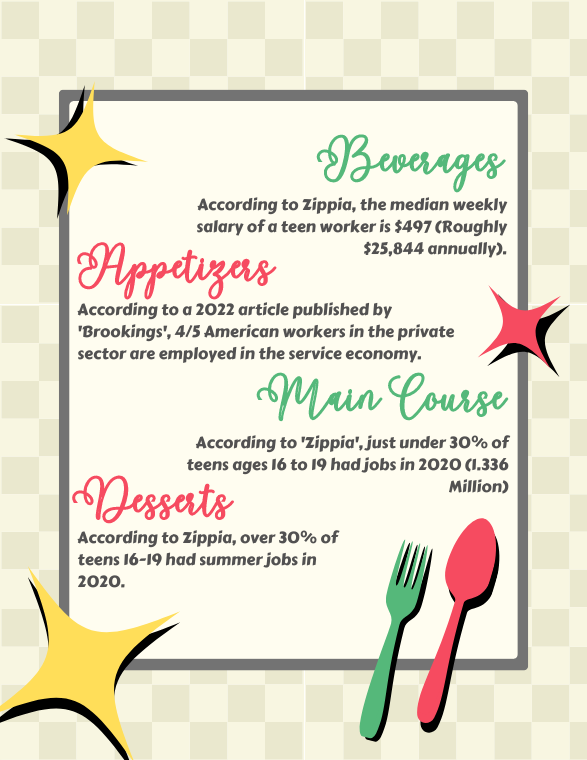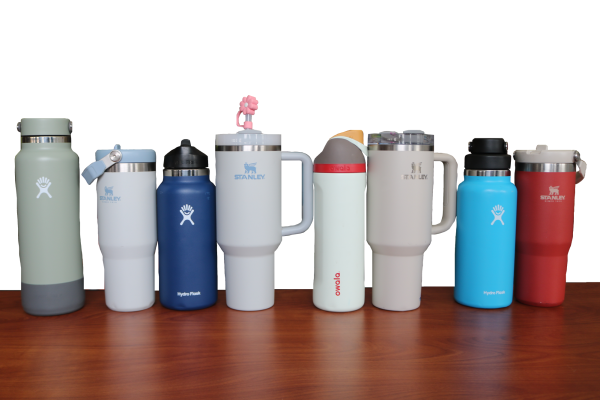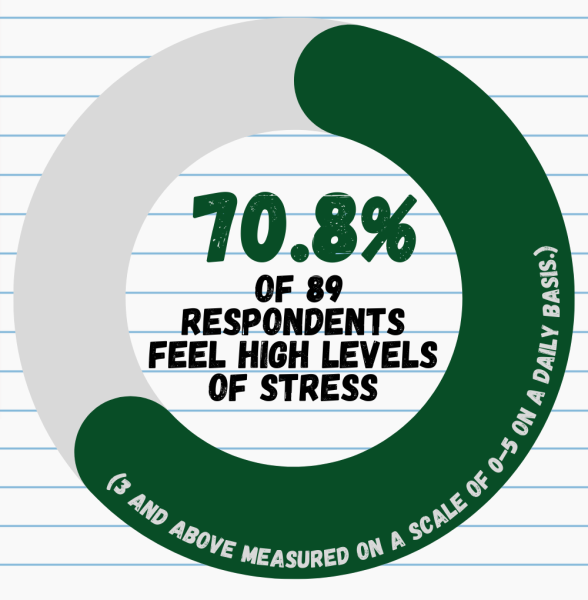Am I in the wrong? Why our treatment of minimum wage workers is important
It’s a well-known fact that our country would be very different without the countless people who work in the service industry. In fact, according to a 2022 article published by Brookings, four out of five American workers in the private sector are employed in the service economy. Especially in the United States, where many start the path towards making money at a young age, jobs in places that range from restaurants to retail stores to entertainment venues employ people of all different ages, from adults to teenagers.
Much of the time in these environments, it is easy to buy a product, place an order or request a service without much of a second thought. Many people are mistakenly under the impression that they are not responsible for the comfort of these workers, since after all, they’re being paid to carry out these tasks, no matter how difficult or demanding the customer. But as a teenager who works in the service industry myself, even though you shouldn’t make our jobs easier, you shouldn’t make them harder either.
I started working as soon as I was old enough. Around the time of my freshman year in high school, I got a permit that allowed me to work under the age of sixteen, and I applied to work at a Jimmy John’s down the street from my house. There was nothing especially good or bad about the job. It was simple work for a simple wage. It was nothing cushy, but it also wasn’t grueling, backbreaking labor.
I’d show up for a shift in my uniform, work for a certain amount of hours and be paid a sum of money for each hour that I worked. I’d always considered myself a people person, so it was always nice to have one of those pleasant, feel-good customers at the drive-through window or the counter, making small talk and waiting patiently.
I also considered myself very personable, and was under the naive impression that the people I encountered on a daily basis would see that, acknowledge that and appreciate that. Many of them did, and I quickly was able to turn a chance encounter at a drive-through window into a conversation as they waited for their food. Unfortunately, while this positive is true, so too is the negative.
Everybody knows of them, but many people don’t realize that they are them: the people who complain loudly about overpriced products, as though the workers there can somehow control it, the people who grumble angrily about the length of a line, or the people who don’t receive extra mayonnaise on their sandwich from a worn-out worker and take the opportunity to vent their frustrations.
Many people do these things without thinking twice, but why? Is it because they see service workers as lesser because of their occupation? Is it because they’ve just had a bad day and a botched order is the last straw? Or is it because they truly don’t recognize that what they’re saying and doing is hurtful? Either way, the end result is the same: the worker feels mistreated, and morale drops significantly over time. The question has to be asked whether or not high school workers, and any worker in the service industry regardless of age, deserve the treatment that they get from some customers.
We don’t. High school is difficult for every student. We find ourselves juggling school work, extracurricular activities such as sports and music and social lives. Taking on a job, despite being compensated for it, is no easy feat.
That, combined with customers who refuse to accept that everybody makes mistakes and that no good or service is going to be perfect, in my personal opinion, is why not as many students are taking on jobs if they don’t have the need to. Correcting the behavior of agitated customers starts with a single step: recognition.
Sometimes it may be difficult to understand the impact our words and actions have on others. But there are questions that you can ask yourself to determine if you are a problem for workers. For example, are you cutting them the necessary slack? Do they look like they’re having an easy shift or do they seem to be struggling? It’s important to carefully consider and ask ourselves if we’re in the wrong when it comes to our treatment of minimum wage workers.














